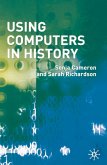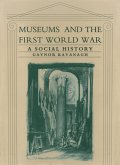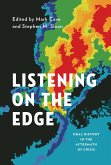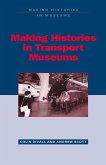Processing the Past explores the dramatic changes taking place in historical understanding and archival management, and hence the relations between historians and archivists. Written by an archivist and a historian, it shows how these changes have been brought on by new historical thinking, new conceptions of archives, changing notions of historical authority, modifications in archival practices, and new information technologies. The book takes an "archival turn" by situating archives as subjects rather than places of study, and examining the increasingly problematic relationships between historical and archival work. By showing how nineteenth- and early twentieth-century historians and archivists in Europe and North America came to occupy the same conceptual and methodological space, the book sets the background to these changes. In the past, authoritative history was based on authoritative archives and mutual understandings of scientific research. These connections changed as historians began to ask questions not easily answered by traditional documentation, and archivists began to confront an unmanageable increase in the amount of material they processed and the challenges of new electronic technologies. The authors contend that historians and archivists have divided into two entirely separate professions with distinct conceptual frameworks, training, and purposes, as well as different understandings of the authorities that govern their work.
Processing the Past moves toward bridging this divide by speaking in one voice to these very different audiences. Blouin and Rosenberg conclude by raising the worrisome question of what future historical archives might be like if historical scholars and archivists no longer understand each other, and indeed, whether their now different notions of what is archival and historical will ever again be joined.
Dieser Download kann aus rechtlichen Gründen nur mit Rechnungsadresse in A, B, BG, CY, CZ, D, DK, EW, E, FIN, F, GR, HR, H, IRL, I, LT, L, LR, M, NL, PL, P, R, S, SLO, SK ausgeliefert werden.









